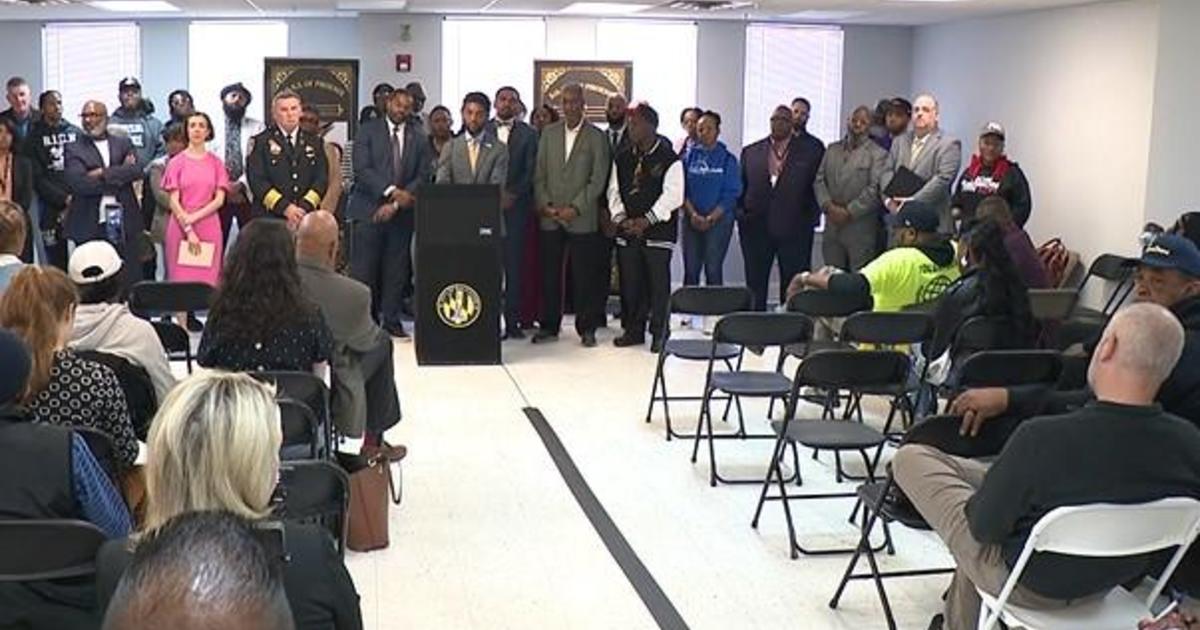D.C. Council Poised To Repeal Online Gambling
WASHINGTON (AP) -- After becoming the first jurisdiction in the nation to legalize online gambling within its borders, the District of Columbia is poised to repeal the program before it launches.
The strong backlash on the D.C. Council to the district's online gambling program has little to do with moral opposition to gambling. Instead, councilmembers are upset with the way it became law, saying they didn't realize they had voted to approve it.
Councilmember Jack Evans told The Associated Press on Tuesday that he plans to move a repeal bill out of his finance and revenue committee on Wednesday. Evans also said he would vote for the repeal bill when it goes before the full council, and the bill appears to have the support of a majority of councilmembers.
Evans, a Ward 2 Democrat, said neither the council nor the public was given enough opportunity to weigh in on the program before it became law. He also said he was troubled by a report from the district's Inspector General that raised questions about changes to the district's contract with its lottery vendor that paved the way for online gambling.
"We just need to start over," he said, adding that he had no plans to introduce a bill.
Councilmember Michael A. Brown, who has led the push in the district for online gambling, said he would introduce a new bill if the repeal is successful.
"Most of the folks that are supporting the repeal are OK with" online gambling, Brown said. "They just want to start the process all over, which I find curious."
Brown warned that offering online games later may mean the district would no longer experience the "revenue bonanza" it would receive by being the first jurisdiction to offer the games.
The program would have allowed people using computers inside the district to play online poker, blackjack and other games of skill and chance. Players would have to be at least 19 years old and would be barred from wagering more than $250 a week.
A Justice Department ruling in December clarified that intrastate online gambling is legal, and several states are
considering it, but so far the district and Nevada are the only jurisdictions to approve laws or regulations authorizing it.
Nevada officials hope to begin offering online poker by year's end.
In the district, online gambling became law outside the normal legislative process.
The program would have been run by the D.C. Lottery and its Greece-based vendor, Intralot. But when the council approved Intralot's $39 million contract in 2009, the contract did not specify that Intralot would be able to bring online gambling to the district. Instead, it only included language about "nontraditional games."
The contract was later amended to specify that Intralot could implement an online gambling system. Then, in late 2010, Brown inserted language in a supplemental budget bill that legalized online gambling in the district. It became law last April when Congress declined to intervene.
Several councilmembers have since said they did not realize they were authorizing online gambling as part of the budget bill, and Councilmember David Catania has threatened to sue the district's chief financial officer for altering the lottery contract without council approval.
The council took testimony from the public only after the gambling program became law, and lottery officials held a series of community meetings last fall for people to express their concerns.
Civic activists have raised concerns about the security of the software and the broad discretion given to the lottery agency and CFO Natwar Gandhi to run the program.
People who attended the forums supported online gambling by a more than 2-to-1 margin, Brown said.
Evans said Tuesday that competitive bidding would need to be part of any future effort to legalize online gambling in order to ensure that the district, not Intralot, would be the chief beneficiary of the program.
Catania and Councilmember Muriel Bowser, who are on the Finance and Revenue Committee that's chaired by Evans, also intend to vote for repeal. The two other committee members, Brown and Marion Barry, want to see the program go forward.
Brown has pushed online gambling as a source of needed revenue -- Gandhi's office has estimated it would bring in $13 million over four years -- and said it would protect Internet poker players who currently use illegal offshore sites.
"There will continue to be thousands of residents playing unprotected, and there has yet to be anyone that has shown outrage for that," Brown said.
In addition to Evans, Bowser and Catania, at least three other members of the 12-person council support repeal: Jim Graham, Phil Mendelson and Tommy Wells, who introduced the bill. Council Chairman Kwame Brown has not taken a position on repeal but has said numerous times that he opposes all gambling.
Mayor Vincent Gray also wants to see online gambling repealed, said his spokesman, Pedro Ribeiro.
"It's become such a divisive issue. It's not critical to the fiscal needs of the city," Ribeiro said. "It's just better to
stop this, take a few steps back, take a deep breath and figure out where to go from here."
(Copyright 2012 by The Associated Press. All Rights Reserved.)



